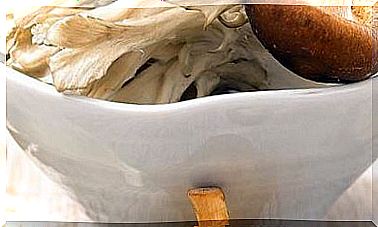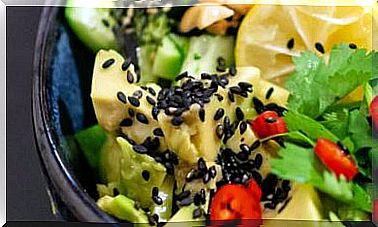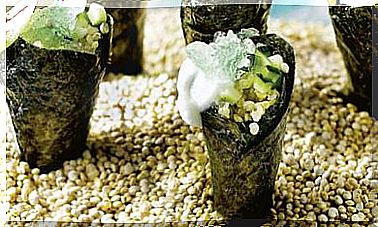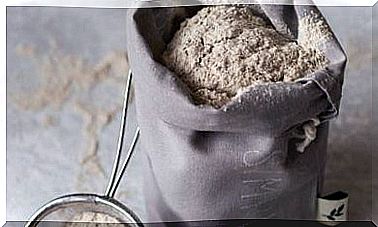Natural Plan To Breathe Well In Spring (and Avoid Allergies)
If you are sensitive to pollens and other allergens, you can prevent and treat the effects of allergies with plants, diet and other natural care.

Allergies occur as a result of our physiological and biochemical interaction with the environment around us, including food, the air we breathe with (pollen and pollutants) and the clothes we wear.
All these elements are full of natural or artificial substances, and even microbes, which are identified as allergens by our immune system.
Why do allergies rage in spring?
Allergies to pollen, and other things, are more frequent in spring, especially respiratory allergies , but also skin allergies .
This is due to the presence in the air of various pollens that trigger rhinitis, asthma or hives, generally in people who have suffered from them before.
Apart from pollens, there are other natural substances that can also trigger a spring allergy, such as fungi, spores, insects, and animal hair.
Common symptoms of spring allergy
- Breathing difficulties. Allergens usually provoke a respiratory type response, affecting the eyes (itching, tearing), nose, cranial sinuses, pharynx, bronchi and lungs. The pollens from trees, weeds and common plants are those that tend to produce more allergies. Hay fever is allergic rhinitis, possibly the most common of the spring allergies.
- Other physical complaints. However, allergy can present in multiple forms: choking, irritable bowel, nasal congestion, conjunctivitis, diarrhea, headache, edema of the feet or hands, rashes, eczema, pharyngitis, hyperactivity, lacrimation, recurrent otitis, itching, cough and vaginitis.
The best diet to prevent allergy
Although it is mainly a respiratory allergy, we must try not to consume allergens that can increase our immune stress and worsen the allergic process.
- Vegetables and fruits. A diet rich in these foods is recommended: all kinds of fruits (except citrus), vegetables (except sweet corn and tomatoes), brown or white rice, almonds, walnuts, pine nuts, sunflower seeds and potatoes.
- Avoid dairy and gluten. Reduce dairy products and derivatives from your diet. Dairy forms mucus. It also reduces wheat products: they contain gluten, a particularly allergenic protein. Substitute them for rice or oatmeal.
- Hydrate well. Drink a good amount of water, which will help you carry out internal purification.
- Only good fats. Minimize or eliminate cooked or fried fats. A reasonable amount of fat of natural origin (virgin oils, nuts …) will give us the necessary contributions of essential fatty acids.
4 plants to fight allergies
- Helichrysum ( Helychrisum sp ). It is considered antiallergic, due to a possible stimulation of the adrenal glands. The flower heads are used in infusion, internally and externally.
- Black currant ( Ribes nigrum ). The leaves and buds of this plant are diuretic and antirheumatic, and inhibit the release of histamine. The fruit is the black currant.
- Nettle ( Urtica sp ). The leaves, in infusion, strengthen the blood and regulate allergies. When fresh, on the skin, they act as a stimulant and vesicant, stimulating blood circulation.
- Rose hip ( Rosa canina ). Regulates the immune system. You can prepare a tea with the four plants in equal parts (1 teaspoon of each), two or three times a day.
Relieve allergy symptoms with natural aids
Hygiene in the house is important: avoid carpets, curtains or ornaments that accumulate dust; ventilate the rooms well, and also:
- Get nasal washes. Make it with a seawater irrigator, or prepare it at home with 250 cc of water, ½ teaspoon of quality sea salt (2.5 g) and a knife point of baking soda. Once or twice a day, especially when the nose itches the most. The same solution works for eye washes.
- Put onion on the nightstand. Put a chopped onion (and some chopped on the surface) on a plate near the headboard where you sleep. The essential oil and the allylcysteine in its aroma can soothe our allergy.
- Take magnesium. Relaxes the muscles, even the bronchial. One to three tablets a day, while the crisis lasts, but consult a professional.
- Make sure of vitamin C. People with allergies have less ascorbic acid (vitamin C) in plasma. Taking foods (or supplements) rich in this vitamin can help reduce the process.
- Vitamin E. It is a powerful antioxidant: it inhibits some of the processes that trigger the asthmatic crisis.
- Omega-6 fatty acids. Like evening primrose oil, which can be helpful in reducing the allergic process.









